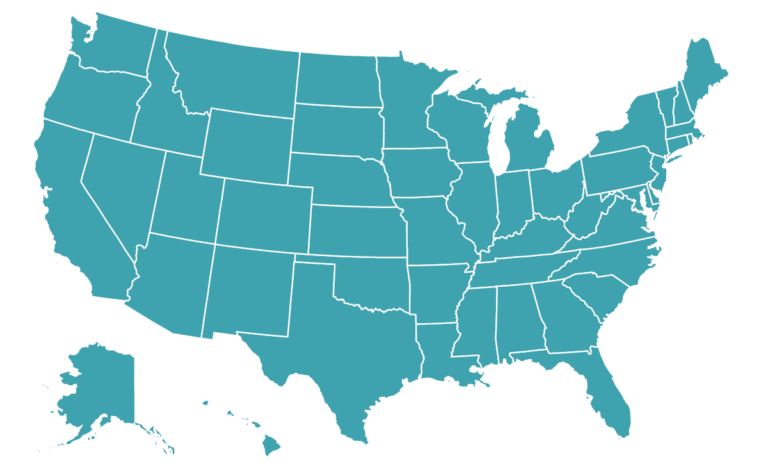Discover Social Work Degree Programs
Whether you're just starting your journey in social work or looking to advance your career, understanding the various degree options available in social work is crucial. This guide explores the different levels of social work degrees, including the Associate of Social Work (ASW), Bachelor of Social Work (BSW), graduate certificates, Master of Social Work (MSW), and Doctorates in Social Work (DSW and Ph.D.). By comparing these levels, you can find the right fit for your goals and aspirations in the field and start your journey to become a social worker.

Social Work Degrees Overview: What Social Work Degree Is Right for Me?
In order to begin your social work career, you’ll need to complete the appropriate education. However, the type of degree you should pursue depends entirely on your specific career goals and educational needs. Below is a table to help you decide which degree path will make the most sense for your specific circumstances:
| Degree Level | Length | Description | Focus Areas | Career Options |
|---|---|---|---|---|
| Associate Degree in Social Work (ASW) | 2 years | Provides foundational knowledge in social work. | Introductory courses in social work principles and practices. | Entry-level positions including social work assistants, case management aides, or community outreach workers. |
| Bachelor of Social Work (BSW) | 4 years | Offers a comprehensive understanding of social work principles. | Broad-based curriculum covering social work theory, methods, and fieldwork. | Roles like case manager, mental health assistant, or social services coordinator. |
| Master of Social Work (MSW) | 1-2 years | Focuses on advanced social work theory and practice. | Specialized coursework in areas such as clinical social work, policy analysis, or community practice. | Clinical social worker, healthcare social worker, or school social worker. |
| Social Work Graduate Certificate | 6 months – 1 year | Provides specialized training in a specific area of social work; typically open to those with a prior master’s degree | Targeted coursework in areas like child welfare, gerontology, or substance abuse counseling. | Enhances skills in areas like child welfare, gerontology, or substance abuse counseling. |
| Doctorate of Social Work (DSW or Ph.D.) | 3-5 years | Emphasizes research, leadership, and advocacy in social work. | In-depth study of social work theory, research methods, and advanced practice. | University professor, policy analyst, or high-level administrator in social work organizations. |
Program Accreditation
Proper social work program accreditation ensures that your degree will meet your state’s licensing requirements. Social workers are licensed by the Council on Social Work Education (CSWE), so you’ll need to make sure that they accredit your degree program. That isn’t to say that you won’t receive a good education from non-accredited schools, but your options will be limited by a non-accredited degree.
It’s also important to know that while associate’s and doctorate degrees in social work exist, there are currently no CSWE-accredited ASWs, DSWs, graduate certificates, or Ph.D. programs in social work. However, efforts are being made to change that in the future.
Associate’s Degree in Social Work (ASW)
While you’ll need a bachelor’s degree or higher for most social work positions, there’s still a place in the field for those with an Associate’s Degree in Social Work (ASW). This degree provides a basic, entry-level education for those looking for a foot in the door for jobs like case manager, direct support professional, or entry-level positions in shelters or nursing homes. It can also pave the way for future education. An ASW takes two years to complete and can be found at the community college level.
Bachelor of Social Work (BSW) Degree
A Bachelor of Social Work (BSW) degree is the minimum requirement for most social work positions. This degree can lead to promising careers, such as:
- Occupational Social Worker
- School Social Worker
- Community Social Worker
- Child Welfare Social Worker
- Correctional Social Worker
While a BSW degree is a great choice for many people in this field, it can be limiting in some situations. In many therapeutic or clinical-based social work careers, you must get at least a master’s degree (MSW). A BSW will take around four years to complete and can be found at many colleges and universities.
Master of Social Work (MSW) Degree
For those looking to enter into clinical-based social work settings, a Master of Social Work (MSW) degree can give you the right qualifications and educational background when it comes to interviewing for positions like:
- Healthcare Social Worker
- Mental Health Social Worker
- Administrative Social Worker
- Aging Social Worker
- Substance Abuse Social Worker
MSW programs are a great way to get a much broader scope of education and practice as a social worker. They are also the most common level of education for social work licensure, which can vary by state. Holding an MSW may benefit your paycheck and the number of different career opportunities available. MSW programs take two years to complete once you have obtained a BSW and are commonly found at universities nationwide.
Each state may have different requirements. To find out specific requirements, click on your state.

- AL Alabama
- AK Alaska
- AZ Arizona
- AR Arkansas
- CA California
- CO Colorado
- CT Connecticut
- DE Delaware
- FL Florida
- GA Georgia
- HI Hawaii
- ID Idaho
- IL Illinois
- IN Indiana
- IA Iowa
- KS Kansas
- KY Kentucky
- LA Louisiana
- ME Maine
- MD Maryland
- MA Massachusetts
- MI Michigan
- MN Minnesota
- MS Mississippi
- MO Missouri
- MT Montana
- NE Nebraska
- NV Nevada
- NH New Hampshire
- NJ New Jersey
- NM New Mexico
- NY New York
- NC North Carolina
- ND North Dakota
- OH Ohio
- OK Oklahoma
- OR Oregon
- PA Pennsylvania
- RI Rhode Island
- SC South Carolina
- SD South Dakota
- TN Tennessee
- TX Texas
- UT Utah
- VT Vermont
- VA Virginia
- WA Washington
- WV West Virginia
- WI Wisconsin
- WY Wyoming
Graduate Certificate in Social Work
Graduate certificates are a great way for graduate-prepared psychology or counseling students to specialize in social work without going through another lengthy degree program. One popular option is to get a psychology degree with a graduate certificate in social work, allowing graduates to enter the field as practicing psychologists. Though many different social work graduate certificates exist, none are currently accredited by CSWE. They will take anywhere from six to twelve months to complete.
Doctorate in Social Work Degrees – DSW and Ph.D.
If you complete your MSW and still want to continue your studies, you might want to consider getting a doctorate in social work. Two types are available: Doctorate of Social Work (DSW) and Doctorate of Philosophy (Ph.D.) in social work. A DSW will typically focus more on the clinical aspect of social work (though all licensing requirements will be met with an MSW), and a Ph.D. in social work will be more focused on the theoretical and educational aspects of social work. Both will take an added 4-6 years following an MSW.
While both provide the highest degree level that a social worker can obtain, it technically doesn’t provide a higher scope of practice unless you are interested in becoming a professor of social work. CSWE accredits neither DSW nor Ph.D. degrees in social work.
Can I Get a Social Work Degree Online?
Online social work degree programs have been around for many years and can provide a great education in the comfort of your own home, and many times, they can be completed at your own pace. If accepted into an MSW program, in-person clinical requirements can often be fulfilled in your community. Other highlights of online social work degrees include:
- Flexibility to study around personal and professional commitments
- Access to a broader range of programs and specializations
- Opportunity to learn from experienced professionals and educators from around the world
- Ability to pace studies according to individual learning styles and needs
Popular Social Work Careers
Discover the specializations available to you within social work. These social work careers can help you work with diverse populations in a variety of environments.

School Social Worker
School social workers provide counseling, support, and advocacy for students facing social, emotional, or behavioral challenges. They collaborate with teachers, parents, and other professionals to develop student success strategies, provide crisis intervention, and facilitate support groups.
Healthcare Social Worker
Healthcare social workers assess patients' social, emotional, and practical needs. They provide counseling and support, coordinate care with healthcare providers, advocate for patients' rights, and connect patients and their families with community resources to ensure holistic and comprehensive care.
Court Social Worker
Court social workers assess the needs of individuals involved in court cases. They develop intervention plans, provide counseling and support, monitor progress in court-ordered programs, collaborate with legal professionals, and advocate for clients' best interests in legal proceedings.
